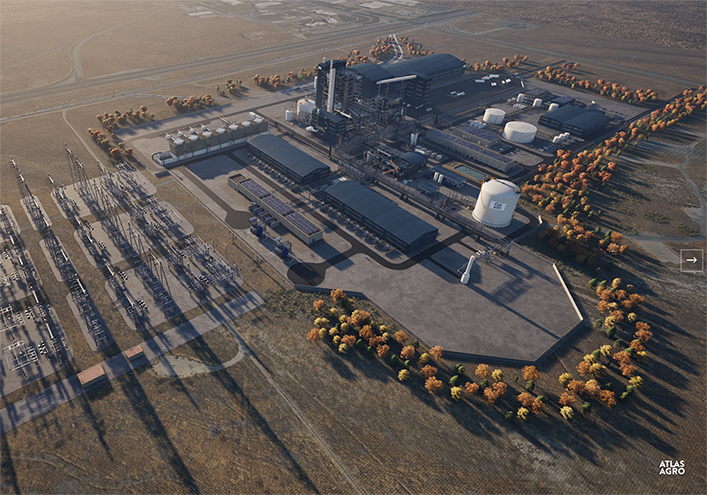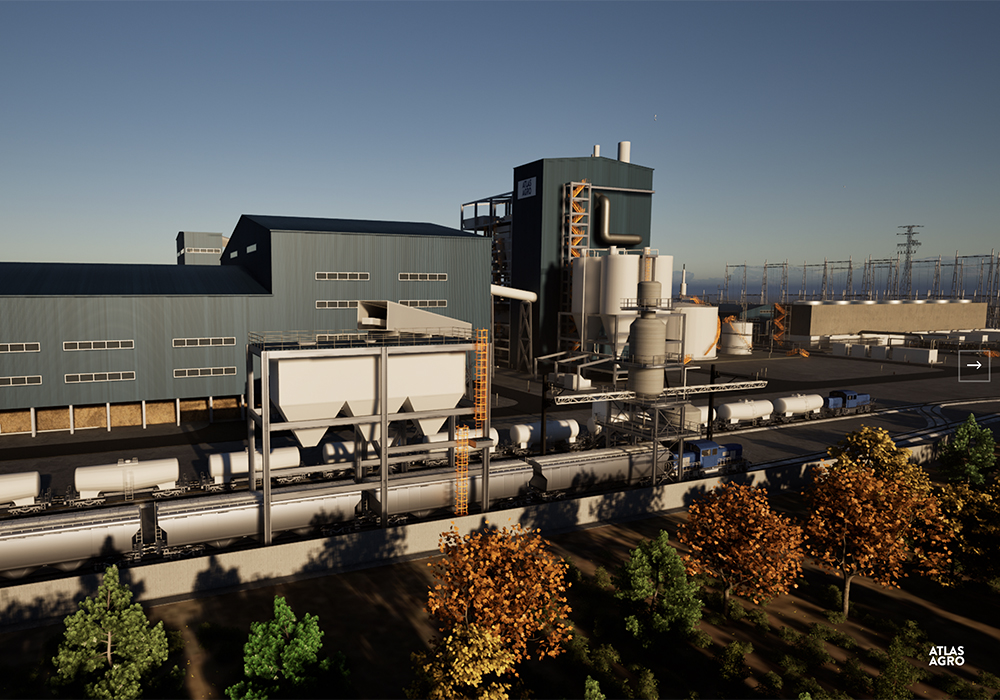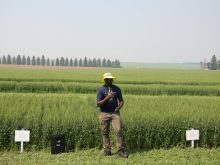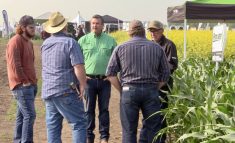MINNEAPOLIS — A Swiss firm is planning to build a green fertilizer plant in Washington state.
If everything goes according to plan, it could be operational by 2027 and the company may deliver some of its low-carbon fertilizer to western Canadian farmers.
Atlas Agro, which has headquarters in Zug, Switzerland, has completed the engineering study for its potential plant in Richland, Wash., which is part of the state’s Tri-Cities region.
Read Also

Volatile temperatures expected for this winter
DTN is forecasting a lot of temperature variability in the Canadian Prairies this winter. Precipitation should be close to average.
The firm has also received the necessary environmental permits to build the US$1.5 billion facility, said Dan Holmes, president of North America for Atlas Agro.
“We’re just working through the last phases of project finance,” said Holmes, who attended the Transform Food & Agriculture conference, a Reuters event held in Minneapolis last week.
On its website, Atlas Agro explains that it won’t use the traditional technology to manufacture 700,000 tons of nitrogen fertilizer per year.
The company will produce hydrogen through water electrolysis, in which electricity is used to break the bond between hydrogen and oxygen in water.
“Then, we split off nitrogen from air … and mix the nitrogen with the hydrogen to produce ammonia,” the website says.
“The ammonia is converted into nitric acid and later into calcium ammonium nitrate, completing the core production cycle.”
Assuming Atlas Agro can raise the necessary funds, it plans to start construction in 2025 and begin producing fertilizer in 2027.

Disrupting the existing technology in the fertilizer industry, or any industry, is not an easy task.
However, Atlas Agro does have an important advantage.
The company’s chief executive officer, Petter Ostbo, is a corporate heavyweight who founded Atlas Agro in 2021. He’s the former chief financial officer and chief operating officer of Yara International and has overseen the production at more than 50 fertilizer plants and mines worldwide.
Atlas Agro selected Washington state partly because the agricultural region has high value crops such as potatoes. As well, the company would have a close-to-market advantage over competitors.
Still, separating hydrogen from water requires a significant amount of electricity. The U.S. Department of Energy has selected Atlas Agro to be part of the Hydrogen Hub in the Pacific Northwest, meaning the company could be eligible for federal incentives.
The plan is to serve the regional market around Tri-Cities with fertilizer, but some fertilizer could also be transported to Canada.
















